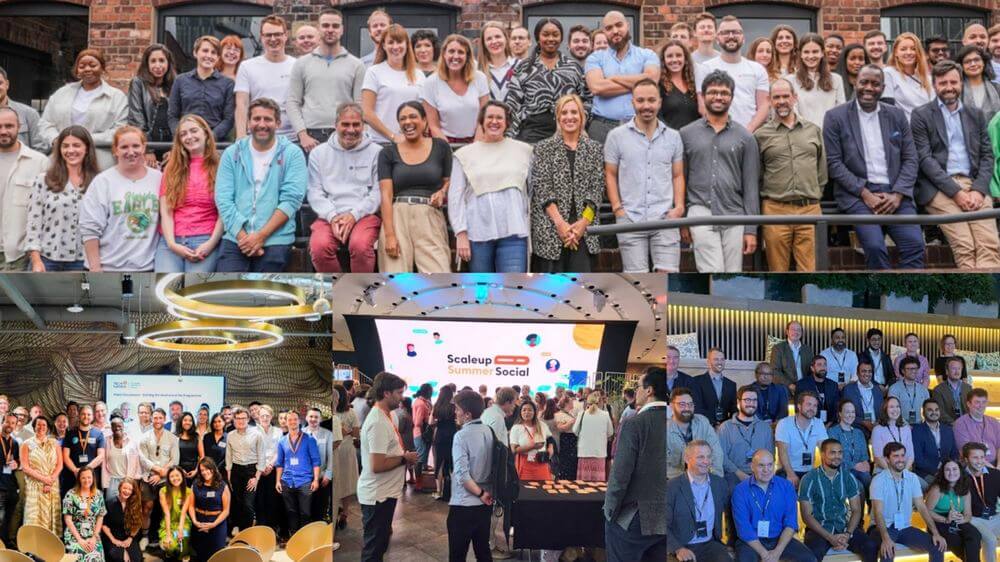TECH Nation, the growth platform for tech scaleups, has published its final report.
How to Build a Scale-up shines a light on the state of UK tech and provides a critical resource to an ecosystem facing a turbulent global economy, uncertainty and change.
The report explores conditions for growth created over the past decade, what tech companies can do, and what needs to happen to accelerate growth in UK tech.

Scale-ups in the UK have returned just over $583bn in value over the past 10 years (2014-2023) — achieved by an exit of some form, whether an acquisition, SPAC or a public listing. Over the next decade, to return around the same rate of value to the ecosystem (just over 3.7x investment) UK tech firms should target exits of $2tn.
Taking into account peaks and troughs in UK tech’s growth rate over the last decade, the UK tech ecosystem could reach $2.6tn by 2032 (up from $1tn in 2022) if the momentum is maintained. If better conditions for scaling can be created, a $4tn ecosystem value by 2032 could be within reach.
There are tailwinds and the inevitable headwinds in reaching “target $4tn” ecosystem value. Investment in 2022 receded by 32 percent globally, and 28 percent in the UK. British startups raised $30bn in 2022, which is 72 percent higher than the 2020 total, but down from the heights of 2021.
In 2022, the UK tech ecosystem saw the lowest number of rounds in the past five years, over 1,200 less than 2021 levels. High value rounds equalling $250m+ and low value rounds equalling less than $1m (pre-seed) encountered the largest percentage falls (with pre-seed rounds falling by 41 percent).
The UK took back its position as the third-largest tech ecosystem in the world for VC investment in 2022, but is likely to see increasing pressure from second-placed India, and emerging ecosystems such as Indonesia and Mexico. Against its European neighbours, the UK remains the dominant player, with investment greater than that made by France and Germany combined.
But UK risks being caught up. France, Italy and Sweden are the only countries to see positive investment growth after the record covid bounce-back year of 2021. (The UK experienced its highest decrease in five years: 24.7 percent.) France is the only country to have experienced positive growth in every year over the past decade.
Future unicorn numbers have risen, with 45 percent growth from 2021 to 2022, suggesting that either the UK is effective at supporting companies to scale, or that there are more unicorns to come.
Some ethnic groups and women are still heavily under-represented in UK tech. No European country achieves a proportion of 30 percent of women in the tech workforce and tech roles for women in the UK are paid nearly 2.5 percent on average less than their male counterparts.
Edinburgh is the city with the most women in tech, followed by Newcastle and Cambridge. All three are above 30 percent vs UK’s average of around 25 percent of the workforce.
For the “target $4tn” value to become reality, it is vital that government rhetoric for the UK to be a “forward-facing technological and scientific superpower” is paired with policies and support mechanisms, the report concludes.
Tech Nation recommends:
- Plug patient capital into all stages of company growth (not just at early stages) to ensure UK companies have the necessary resources.
- Rethink talent gaps, and emphasise opening access to opportunities in tech for all people. Addressing current gaps in access to talent for UK start-ups and scale-ups could contribute up to $400bn in additional value.
- Prioritise value realisation. Tech leaders in the UK must develop a Silicon Valley-like sense of exit intentionality, capital and talent must continue to be efficiently recycled through the ecosystem to create additional value, and knowledge must be deepened and shared around late-stage growth.




























